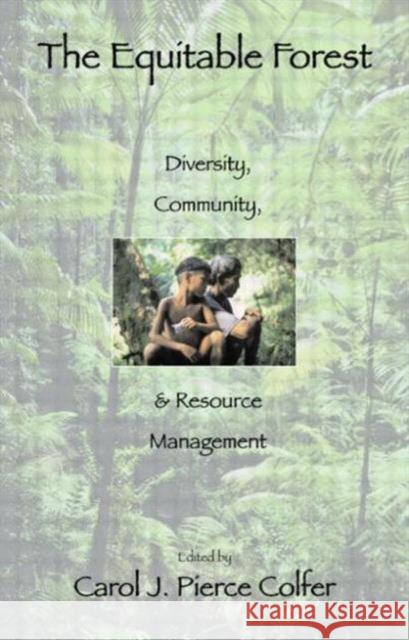The Equitable Forest: Diversity, Community, and Resource Management » książka
The Equitable Forest: Diversity, Community, and Resource Management
ISBN-13: 9781891853784 / Angielski / Miękka / 2004 / 352 str.
The Equitable Forest: Diversity, Community, and Resource Management
ISBN-13: 9781891853784 / Angielski / Miękka / 2004 / 352 str.
(netto: 116,09 VAT: 5%)
Najniższa cena z 30 dni: 110,78
ok. 16-18 dni roboczych.
Darmowa dostawa!
Research and policy toward sustainable forest management have often paid incomplete attention to the well being of local populations and their activities as forest managers. Where there has been recognition of local communities, the roles of marginalized groups and women are usually not well understood. This is despite evidence that equity and social relationships, including gender roles, are important factors in the ways that communities manage forest resources overall and adapt to change. The Equitable Forest provides in-depth analyses of equity and social roles within the context of community-focused, adaptive collaborative management. An essential goal of adaptive collaborative management is to use the knowledge and capacity of groups in local communities to enhance the health and well being of forests and the people who live in and around them. Based on long-term research in the tropics of Africa, Asia, and Latin America, this book provides descriptive, analytical, and methodological tools for improving forest management. This book is a copublication with the Center for International Forestry Research (CIFOR).











